ELK 索引生命周期管理
Posted sanduzxcvbnm
tags:
篇首语:本文由小常识网(cha138.com)小编为大家整理,主要介绍了ELK 索引生命周期管理相关的知识,希望对你有一定的参考价值。
kibana 索引配置
- 管理索引
点击设置 --- Elasticsearch 的 Index management 可以查看 elk 生成的所有索引 (设置,Elasticsearch ,管理)
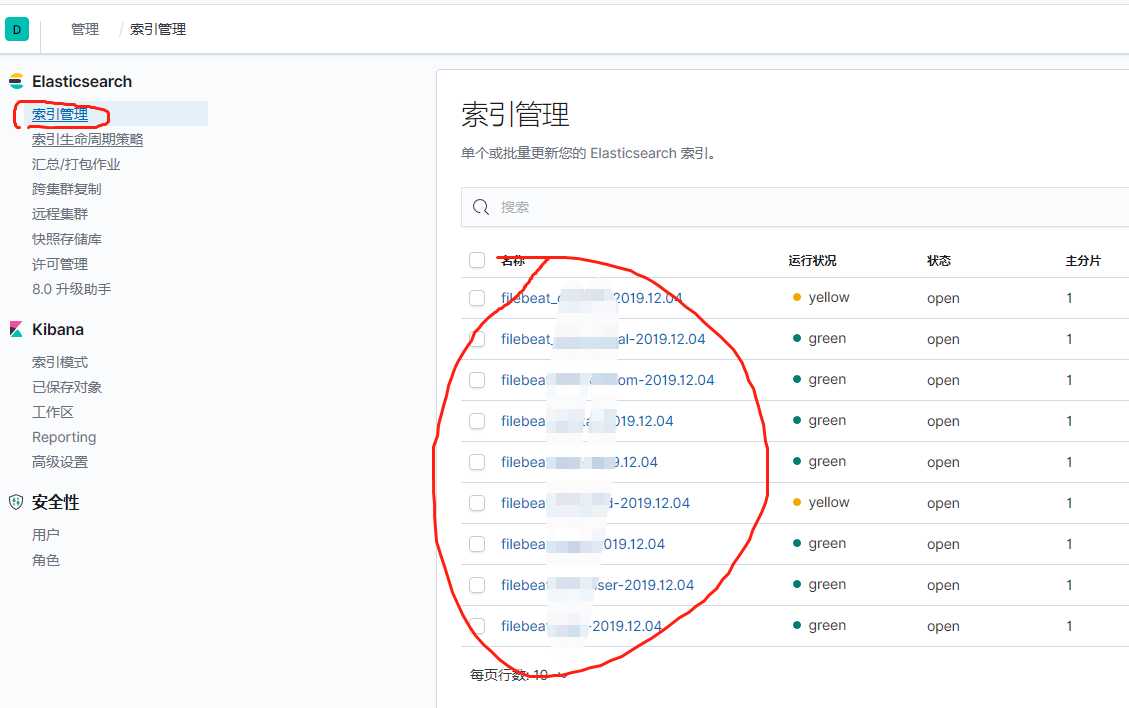
配置 kibana 的索引匹配
设置,Kibana,索引模式
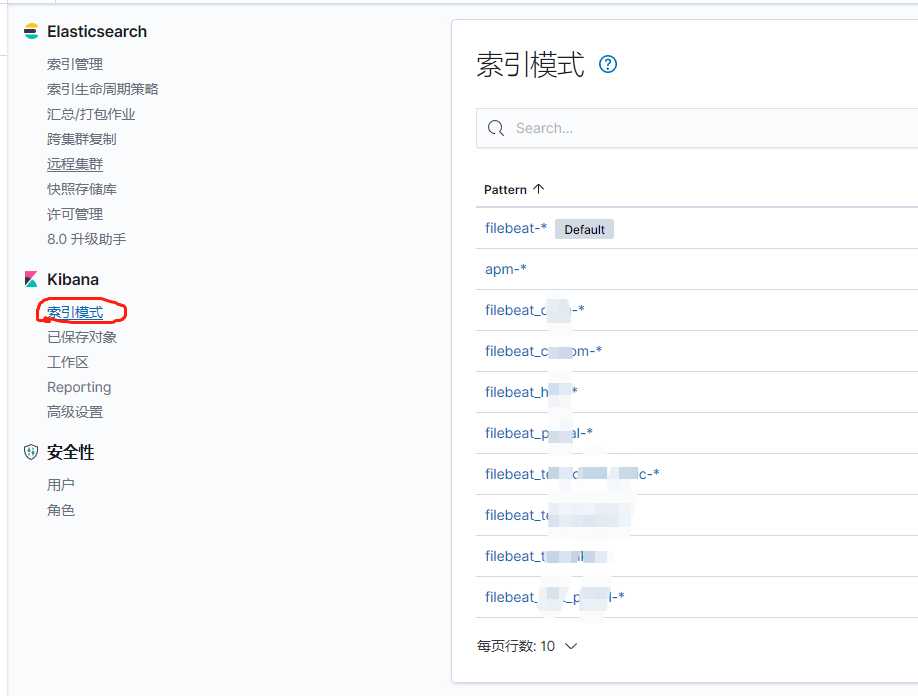
配置索引生命周期
点击设置 --- Elasticsearch 的 Index Lifecycle Policies 可以配置策略管理索引生命周期
配置索引策略文档地址:https://www.elastic.co/guide/en/elasticsearch/reference/7.3/index-lifecycle-management.html
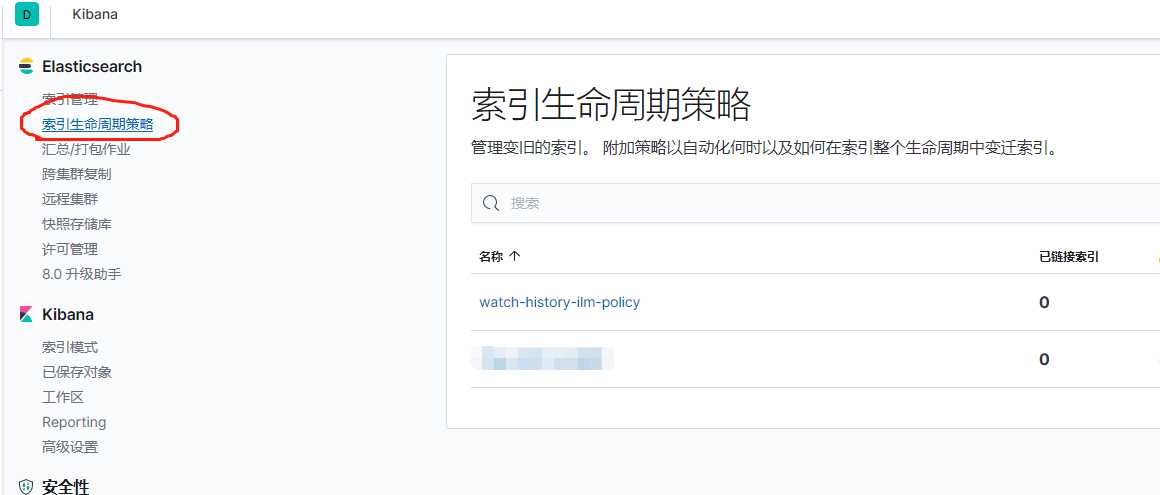
首先创建 Index Lifecycle Policies 也就官方文档中的四个阶段配置
需要说明的是并不是每个阶段都是必要配置
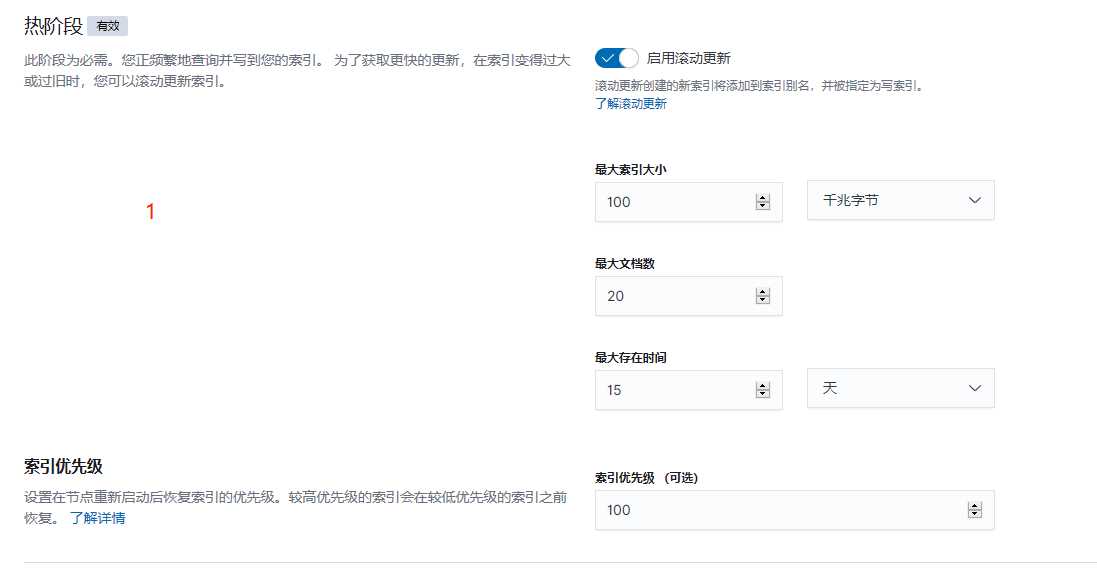
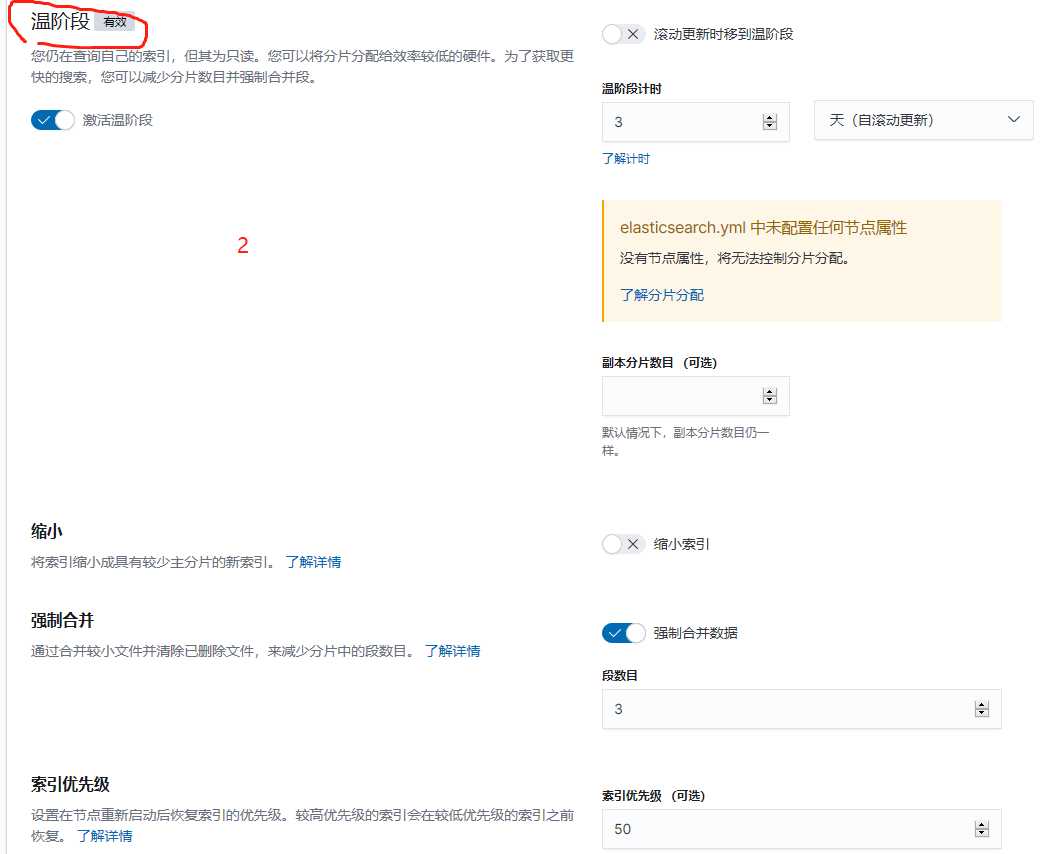
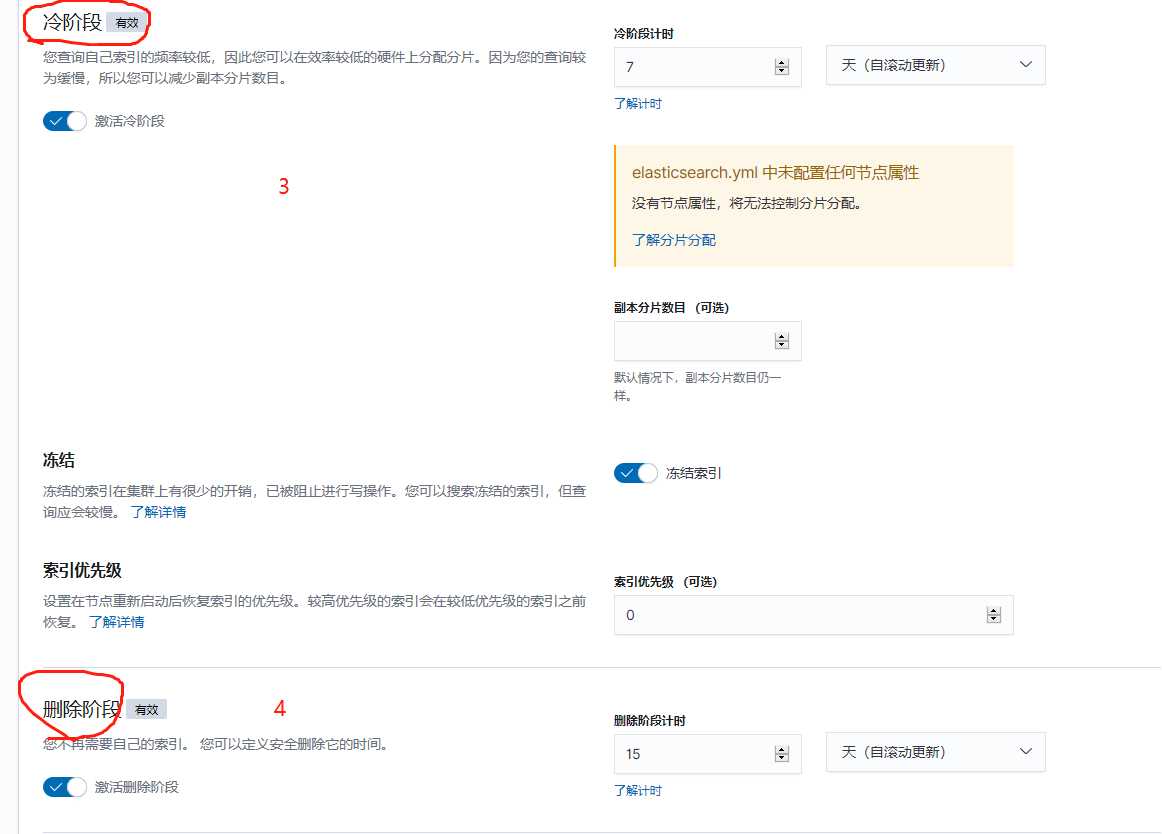
配置好生命周期策略后,我们需要创建一个模板,将我们现在的输入 index 接管过来,然后将策略应用于这个模板,这就达到了,每次创建的 index 都能应用于这一策略
其实最方便的就是将你创建的索引都以 logstash-* 开头,默认就包含一个名为 logstash 的模板。
查询当前的模板
# 查询所有模板
GET /_template/
#查询其中某一个模板
GET /_template/logstash
{
"logstash" : {
"order" : 0,
"version" : 60001,
"index_patterns" : [
"logstash-*"
],
"settings" : {
"index" : {
"lifecycle" : {
"name" : "watch-history-ilm-policy"
},
"number_of_shards" : "1",
"refresh_interval" : "5s"
}
},
"mappings" : {
"dynamic_templates" : [
{
"message_field" : {
"path_match" : "message",
"mapping" : {
"norms" : false,
"type" : "text"
},
"match_mapping_type" : "string"
}
},
{
"string_fields" : {
"mapping" : {
"norms" : false,
"type" : "text",
"fields" : {
"keyword" : {
"ignore_above" : 256,
"type" : "keyword"
}
}
},
"match_mapping_type" : "string",
"match" : "*"
}
}
],
"properties" : {
"@timestamp" : {
"type" : "date"
},
"geoip" : {
"dynamic" : true,
"properties" : {
"ip" : {
"type" : "ip"
},
"latitude" : {
"type" : "half_float"
},
"location" : {
"type" : "geo_point"
},
"longitude" : {
"type" : "half_float"
}
}
},
"@version" : {
"type" : "keyword"
}
}
},
"aliases" : { }
}
}
以上的模板接管了 logstash-* 开头的 index,然后将策略应用于这些 index
如果你不想以 logstash-* 开头创建索引,你可以先创建个模板参考如下:
PUT /_template/my_template
{
"order" : 0,
"index_patterns" : [
"filebeat_cash-*",
"filebeat_custom-*",
"filebeat_portal-*",
"filebeat_user-*",
"filebeat_hkd-*",
"filebeat_test_custom-*",
"filebeat_test_portal-*",
"filebeat_test_user-*",
"filebeat_test_hkd-*",
"filebeat_test_canal_topic-*"
],
"settings" : {
"index" : {
"number_of_shards" : "1",
"refresh_interval" : "5s"
}
},
"mappings" : {
"dynamic_templates" : [
{
"message_field" : {
"path_match" : "message",
"mapping" : {
"norms" : false,
"type" : "text"
},
"match_mapping_type" : "string"
}
},
{
"string_fields" : {
"mapping" : {
"norms" : false,
"type" : "text",
"fields" : {
"keyword" : {
"ignore_above" : 256,
"type" : "keyword"
}
}
},
"match_mapping_type" : "string",
"match" : "*"
}
}
],
"properties" : {
"@timestamp" : {
"type" : "date"
},
"geoip" : {
"dynamic" : true,
"properties" : {
"ip" : {
"type" : "ip"
},
"latitude" : {
"type" : "half_float"
},
"location" : {
"type" : "geo_point"
},
"longitude" : {
"type" : "half_float"
}
}
},
"@version" : {
"type" : "keyword"
}
}
},
"aliases" : { }
}
以上的模板接管了 filebeat-* 开头的 index,然后将策略应用于这些 index
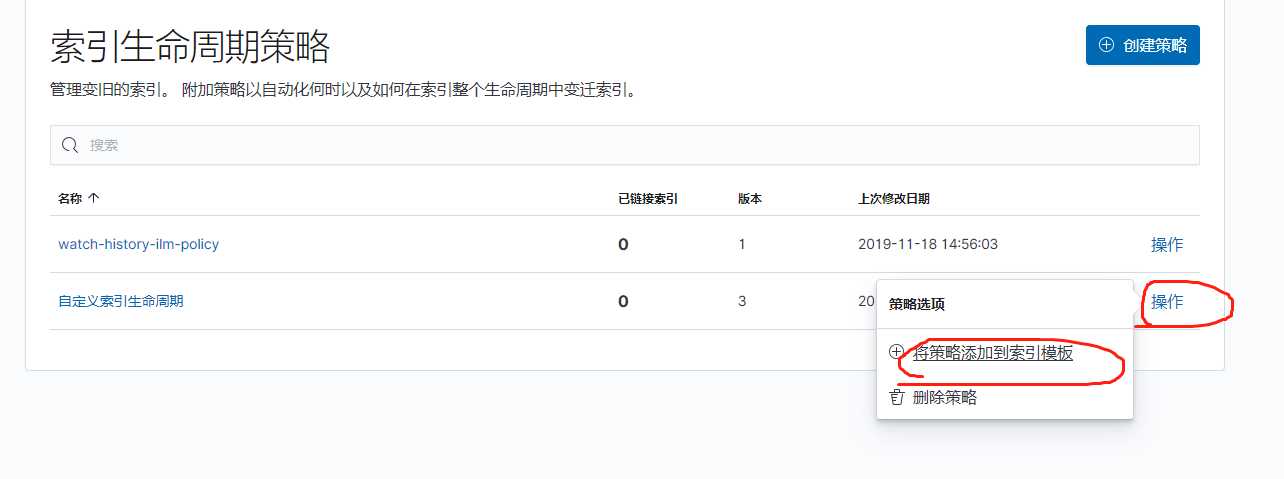
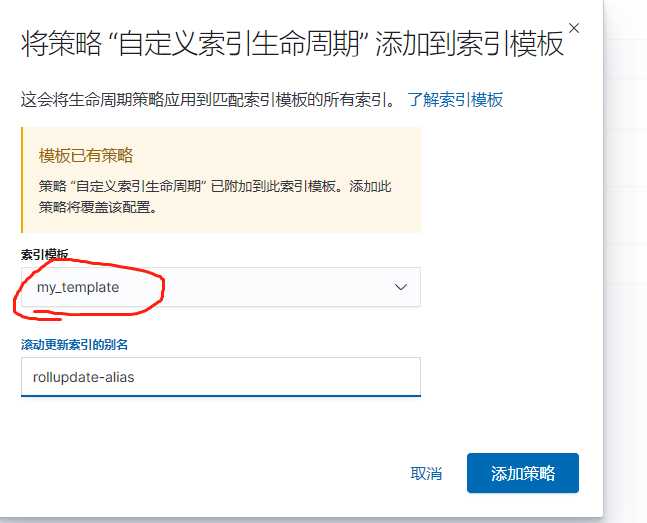
现在我们就可以在 index management 里查看索引当前的生命周期状态
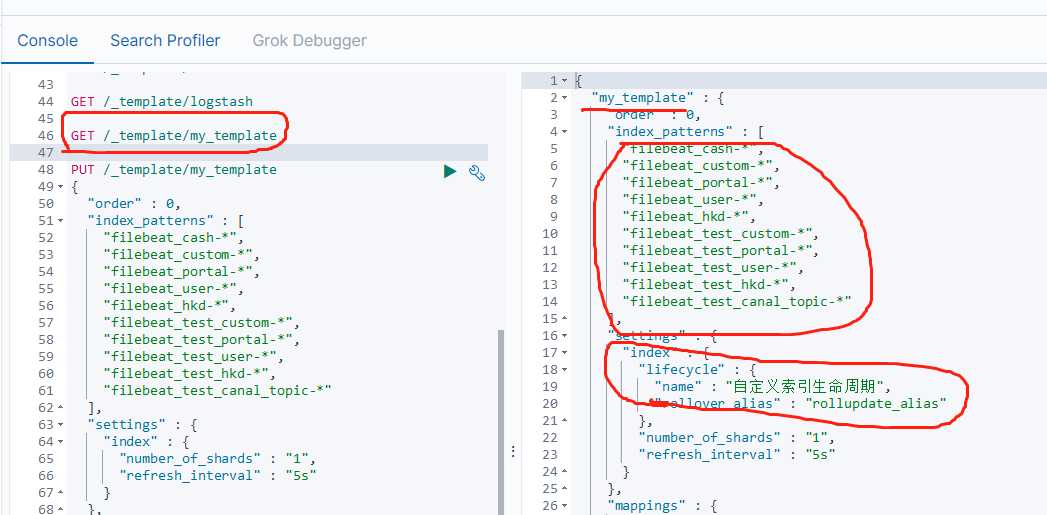
以上是关于ELK 索引生命周期管理的主要内容,如果未能解决你的问题,请参考以下文章